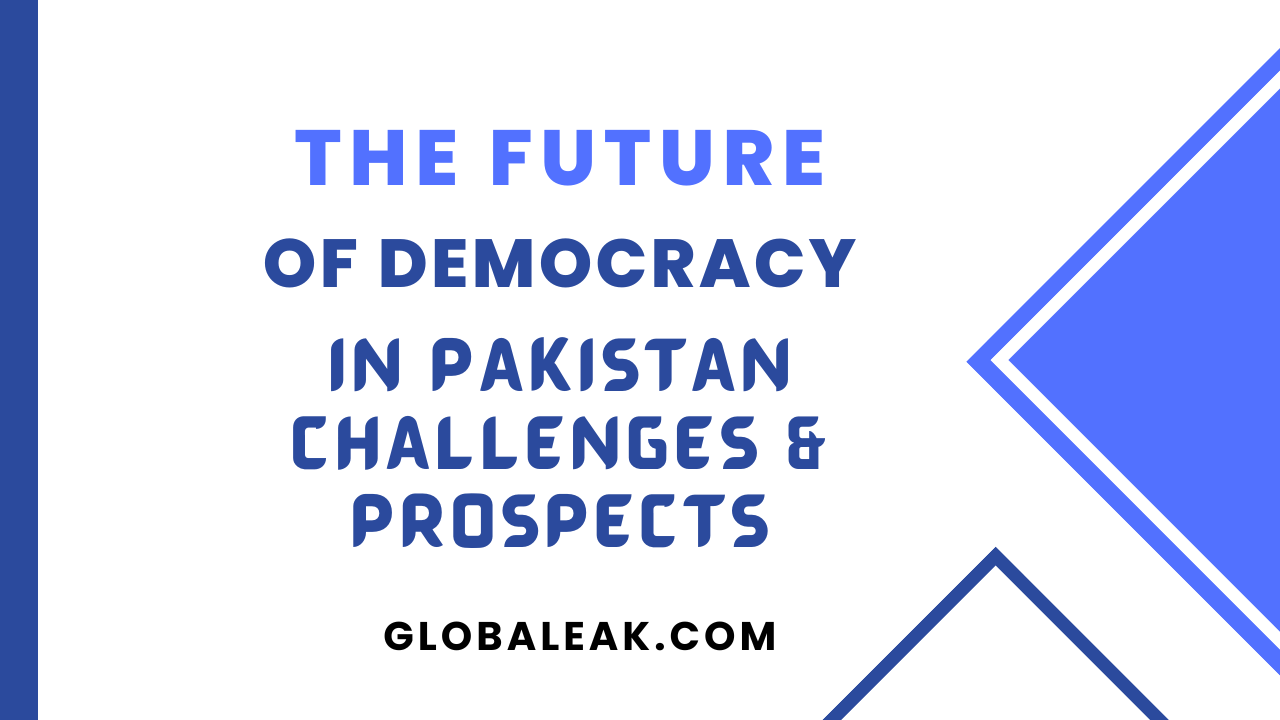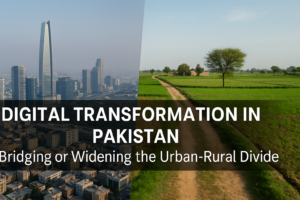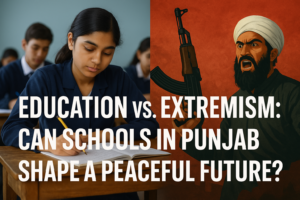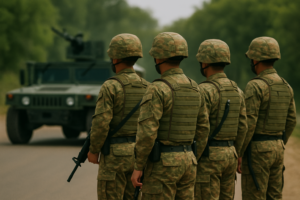Introduction
Democracy is a form of government that rests on the principles of freedom, equality, and participation of the people. In Pakistan, democracy has been a tumultuous journey, with periods of military rule interspersed with civilian governments. As the country continues to navigate its path towards a stable democratic system, the future of democracy in Pakistan presents both challenges and prospects.
Challenges to the Future of Democracy in Pakistan
One of the foremost challenges to the future of democracy in Pakistan is political instability. Pakistan has faced frequent changes in government through military coups, dismissals of elected governments, and political crises. This has resulted in a lack of continuity in policy-making, weak governance, and erosion of public trust in democratic institutions. Additionally, corruption and nepotism have plagued the political landscape, undermining the credibility of elected representatives and diminishing public faith in democracy.
Another challenge is the rise of extremism and terrorism. Pakistan has been grappling with the menace of terrorism for decades, with militant groups posing a serious threat to the democratic process. These groups often seek to undermine democratic institutions, impose their own extremist ideology, and perpetrate violence to disrupt the democratic system. The presence of such radical elements in the country poses a significant challenge to the consolidation of democracy in Pakistan.
Furthermore, socio-economic disparities and inequality are persistent challenges that affect the future of democracy in Pakistan. A large portion of the population lives in poverty, lacks access to basic education and healthcare, and faces discrimination based on gender, religion, and ethnicity. These disparities can fuel grievances and disillusionment among marginalized groups, leading to social unrest and undermining the inclusivity of the democratic system.
Moreover, the issue of political polarization and intolerance poses a threat to the future of democracy in Pakistan. Political parties often engage in divisive rhetoric, promoting sectarianism, and exploiting ethnic, religious, and regional differences for their own gains. This polarization can lead to a breakdown of social cohesion, weaken democratic institutions, and hinder the progress of democracy in the country.
Prospects for the Future of Democracy in Pakistan
Despite these challenges, there are prospects for the future of democracy in Pakistan. One of the key prospects is the growing awareness and participation of the youth in the democratic process. Pakistan has a large youth population, and the increased access to information and technology has empowered young people to demand accountability, transparency, and good governance from their elected representatives. The youth can play a pivotal role in shaping the future of democracy in Pakistan through their active engagement in civic activities, advocacy for democratic reforms, and promotion of democratic values.
Furthermore, the role of civil society and media in Pakistan can also contribute to the prospects of democracy. Civil society organizations, human rights groups, and media outlets have been vocal advocates for democratic principles, exposing corruption, promoting accountability, and safeguarding fundamental rights. Their efforts can help in strengthening democratic institutions, fostering transparency, and building public trust in the democratic system.
Moreover, the consolidation of democratic institutions and processes can contribute to the prospects of democracy in Pakistan. This includes strengthening the judiciary, ensuring an independent and impartial election commission, and promoting a free and fair electoral process. A robust system of checks and balances, effective accountability mechanisms, and respect for the rule of law are essential for the sustainability of democracy in Pakistan.
Conclusion
The future of democracy in Pakistan presents both challenges and prospects. Political instability, extremism, socio-economic disparities, and polarization are significant challenges that need to be addressed to ensure a stable and inclusive democratic system. However, the growing awareness and participation of the youth, the role of civil society and media, and the consolidation of democratic institutions can contribute to the prospects of democracy in Pakistan. As the country continues to strive for a democratic system that upholds the principles of freedom, equality, and participation, addressing these challenges and leveraging these prospects will be crucial for the future of democracy in Pakistan.
Read Also: Failure of Democracy in Pakistan: Causes, Solutions, and Consequences
📍 English Language Educator | Blogger & Content Strategist | 7+ Years in Educational Blogging
Nosheen Bashir is a dedicated English teacher and experienced blogger with over seven years of expertise in content creation and educational writing. Passionate about language, literature, and effective communication, she combines her teaching experience with blogging skills to create insightful, research-backed content that helps learners and educators alike.
🔹 Expertise & Achievements:
✔ English Language Education: A skilled educator with years of experience in teaching English grammar, literature, and communication skills to students of varying levels.
✔ Educational Blogging: Running a successful blog for 7+ years, delivering well-structured, engaging content on language learning, writing techniques, and academic success.
✔ SEO & Content Strategy: Specializes in creating high-ranking, authoritative articles that follow Google’s EEAT principles, ensuring content that is both informative and search-friendly.
✔ Student-Centric Approach: Committed to making English easier, engaging, and accessible, helping readers and students improve their language proficiency.
🚀 With a passion for teaching and writing, Nosheen Bashir is dedicated to crafting educational content that empowers students, teachers, and language enthusiasts worldwide.









